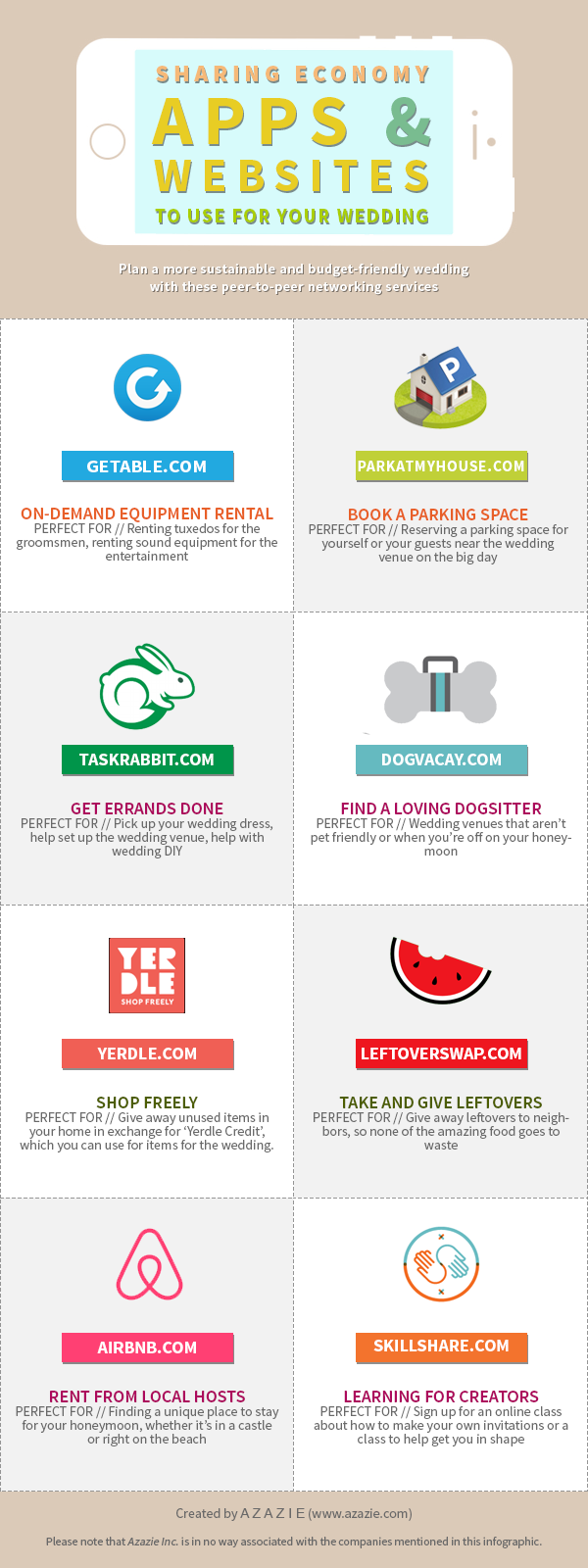Sustainability and the Wedding Industry from P2P to B2B
The sharing or collaborative economy has been a hot topic for some time now, and for good reason. Service and retail industries are competing with the likes of P2P (peer-to-peer) platforms; the most popular example Airbnb was recently valued at a staggering $13 billion [1].
Participation in this flexible economic network is attributed to rise of mobile technology and decline of purchasing power among the public. Tech-savvy Gen Y consumers, and the inaugural Gen Z crowd, indicate such this shift will continue and flourish in the coming years.
But at the heart of this sharing economy is another factor that many overlook, which is the notion of social responsibility that is attached to this type of consumer behavior. There exists an innate value in turning to peers for services instead of that of corporations to reduce resource depletion. At the heart of the sharing economy is sustainability, regardless of technicality debates that shroud this system.
Nothing better demonstrates this shift than the wedding industry. Often labeled as ‘recession proof,’ the wedding industry has remained relatively steady, despite the fact that many couples have scaled back their budget. Even so, having a green wedding is more sought after than ever.
Perhaps the origin of this ideology comes down to budgeting, but many brides and grooms also believe in an innate undesirability of excess and the value of being consumption aware. Couples now have the tools to lessen the carbon footprint of their wedding by turning to platforms to resell wedding décor, ride sharing to and from the venue, or even turning up at this venue in Brisbane for their ceremony.
According to Splendid Insights, one in five couples with a standard wedding budget want their weddings to be eco-friendly or sustainable. Sites like Tradesy, an apparel resell site, have a dedicated wedding section, which is testament to the decreasing stigma of recycle and reuse. Other players like Tagvenue, a venue bookings platform, list a range of unique events spaces, including green wedding venues.
Yes, weddings are ideally once-in-a-lifetime affairs, but it doesn’t mean that they should or can be excessive and wasteful. And why shouldn’t we maximize the use of resources, without that ‘marriage markup’ at a fraction of the cost?
To go a step further, the future of the sharing economy is identified as a rise in B2B (business-to-business). This allows wedding vendors to also increase the sustainability and efficiency of their businesses by sharing anything from office space to equipment to even employees.
What all of this amount to for wedding industry start-ups is that they should work to maximize use of these tools in order to: (1) meet growing customer awareness of sustainability and (2) increase collaborative efforts to decrease costs for their own business.
The long-term effects of this trend are still unknown, but it has the potential to reshape the wedding industry completely. Imagine how pricing for wedding-related services can change if videographers share their camera equipment or wedding planners share their offices. With greater transparency already existing in the wedding industry, B2B may become what finally brings down the marriage markup.
References:
[1] http://www.wsj.com/articles/airbnb-mulls-employee-stock-sale-at-13-billion-valuation-1414100930
Infographic:

Infographic credits: Azazie
















2 Responses to Sustainability and the Wedding Industry from P2P to B2B